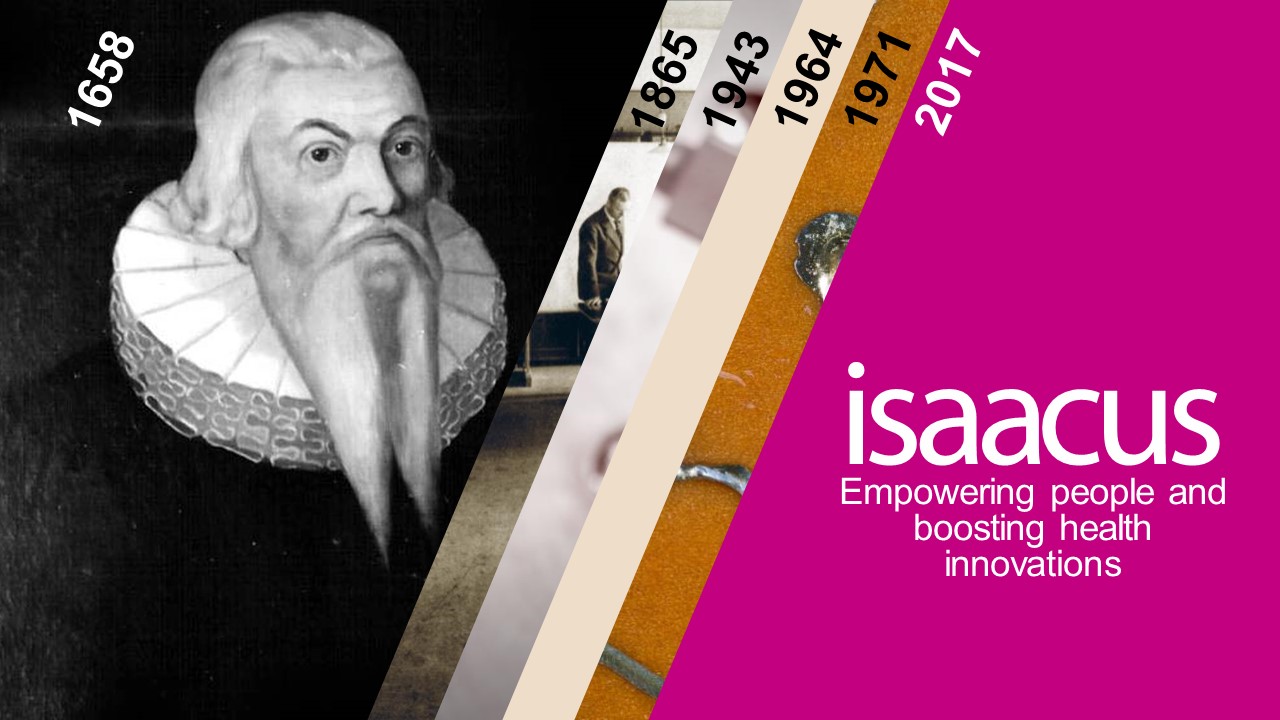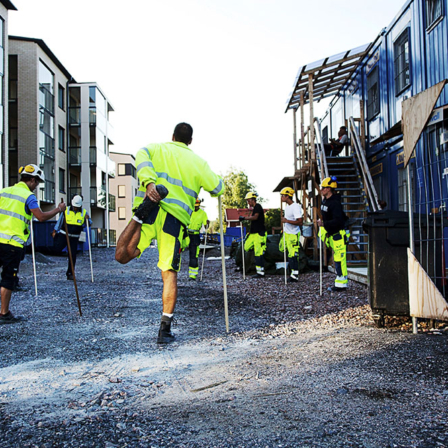The Isaacus – Digital Health Hub currently under development will combine well-being databases and their users in a seamless and safe manner. This will allow engagement of individuals, promotion of well-being and creation of a well-being and health ecosystem that is constantly learning. The Isaacus blog series gives experts the opportunity to shed light on the topic from their own perspective.
An ordinary workday: seated at my workplace finalising the next Isaacus presentation. Looking at old presentations, I behold the image of Isaacus Rothovius. The picture shows a bearded man with a worried look; he seems a bit stiff, perhaps a bit supercilious as well. On the other hand, that’s how the public figures of the 17th century are supposed to look in pictures – I’d better check it on Wikipedia. According to that, Isaacus was a short-tempered man, vigorous in reforming parish practices and who started to keep parish records, a Swedish man of reason who, during his emotional outbursts, would refer to Finns as barbarians and scorpions.
Isaacus was capable of making radical changes – but was he incapable of co-operating with others? Had he forgotten to look at things from the viewpoint of ecosystems, failing to hire a project manager to shepherd the diocese? Was Isaacus motivated by the calculations of an introvert mathematician concerning the importance of church tax on the kingdom’s economy or by a consultant who had sent him away to distant Finland? Would the malevolent talk have been reduced by the hiring of a management consultant? The consultant would have clarified the terms “leadership” and “management” and made the clergy commit themselves to reform work. Isaacus demanded that each parish should look after the poor – had the talks delivered by the MyData reverend encouraged that reform?
Correcting my posture somewhat, I shall now return to the present. I find myself considering the ambitious goals set for the Isaacus project and the role of pre-production projects for the achievement of the goals of the future service operator. On one hand, we want to streamline the processes of national research services; on the other, we want to enable a wholly new kind of information-based management by supporting the development projects of data pools for specialised care. Information must be freed from silos and from slowly updating registers. The revolution by information-based management can be carried out here and now. We can create a new Big Data innovation platform and leap ahead of other Nordic countries by grabbing technological opportunities while seeking support from progressive legislation and national co-operation.
An ecosystem is not a product of chance; first we need to focus our thoughts well. To achieve our greater goal, we also need a common aim, a systematic approach and preparedness to make compromises regarding our own temporary benefits. People need successes. We need level-headed people to define the objectives and to fine-tune the legislative aspects.
Big Data opens up a multitude of opportunities, but, to make good use of it, changes are likely to be needed both to primary and secondary legislation. Algorithms can be of help for municipal residents in their search for more suitable services. They make patient care easier for physicians, and, with their help, services can be planned based on anonymous, demographic information and targeted to those most in need.
To carry out the change, we need project managers who are able to communicate with those concerned. The developers of activities and ICT professionals must study dialogue, and they must regularly venture outside their own comfort zone. Professionals in a research institute can help not only the researchers but also service providers. Integrated social and health services must provide support for both individuals and families. To be able to contribute to the coping skills of a family, we require comprehensive understanding of a family’s situation. Production of data relevant to the concept of “family” is challenging to the producers of social and health services, whereas statistical authorities are no strangers to it. There is an abundance of co-operation opportunities. Also, the MyData reverends are welcome to challenge ossified frames of mind and keep on the right track even if the ICT professionals are right now busy with the construction of infrastructure.
Finland possesses a huge reserve of skills, motivated people, experience and incoming agile characters. We have what it takes. It all depends on us. I dream about a one-stop-shop for Finland’s data reserves. I dream about a service operator who acts quickly and reliably, who knows what kinds of reference networks there are in Finland and is able to market them to the world, who acts in a way that is ethically sustainable, takes care of data protection and compliance with the rights of individuals, who makes a knowledge-based radical transformation possible, and who creates new business opportunities.
Once in a while you feel tempted to say: “This is already old hat, tried and tested”. Or, if an idea has misfired, you may exclaim: “What did I tell you? Nothing will come out of this.” Or you may secretly wish that the next-door neighbour wouldn’t figure out anything that smart. Luckily, these tend to be rare occasions. Someone may point out that it is just an ICT project. Be that as it may, but I feel that by combining our forces in this ICT project it will be possible to commence a long-term transformation in the way we think and act.
In the slowly-changing 17th-century world, one Isaacus was all that was needed. In our time, with its omnipresent digitisation and data, Isaacus alone cannot control the change. An ecosystem must have room for many kinds of actors: the more there are builders for the Isaacus ecosystem, the bigger the transformation we can effect. Our project has received a warm welcome, and I hope that as autumn gets under way we will find more ways for co-operation and exchange of ideas. Carrying out a radical change is serious work, but with a furrowed brow it is hard to invent anything new. Development of ICT is a reasoning game, but without emotion there won’t be any innovations.







Recommended